
Installation ceremony 2025 — meet our new professors
On Thursday 9 October 2025, 22 new professors were inaugurated at Karolinska Institutet in solemn forms in Aula Medica. In addition, we gave our new adjunct and visiting professors a warm welcome, and honour recipients of several academic awards. The professors' installation ceremony is one of the highlights of the academic year. Articles on this page are published in the booklet 'From Cell to Society 2025', which was distributed at the ceremony.
New professors
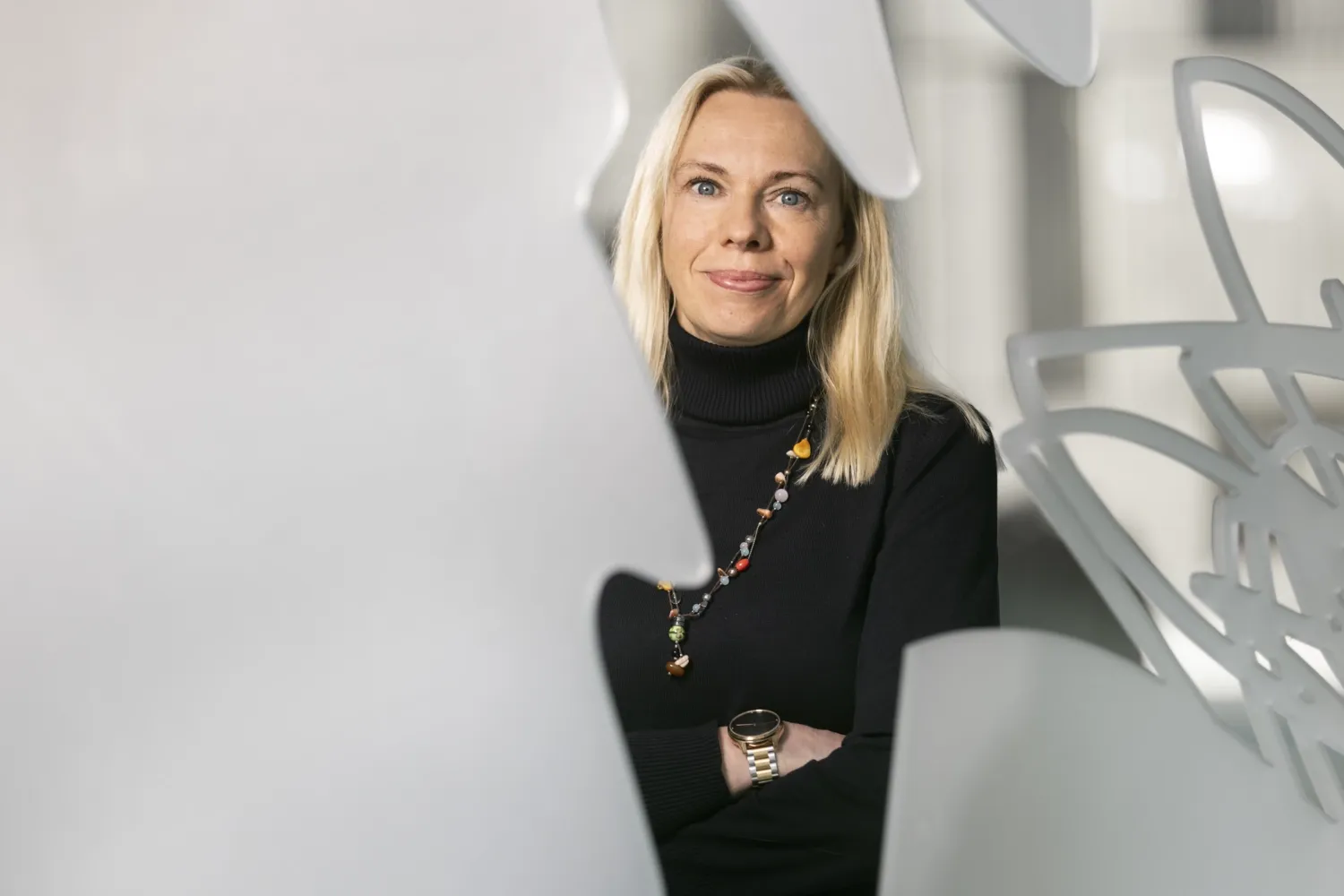 Photo: Rickard Kilström
Photo: Rickard KilströmImproving the care of end-of-life patients
Palliative medicine is a young field of research, and there are few well-made clinical studies. Linda Björkhem-Bergman hopes to answer such questions as how vitamin D affects the patients’ immune system and symptoms.
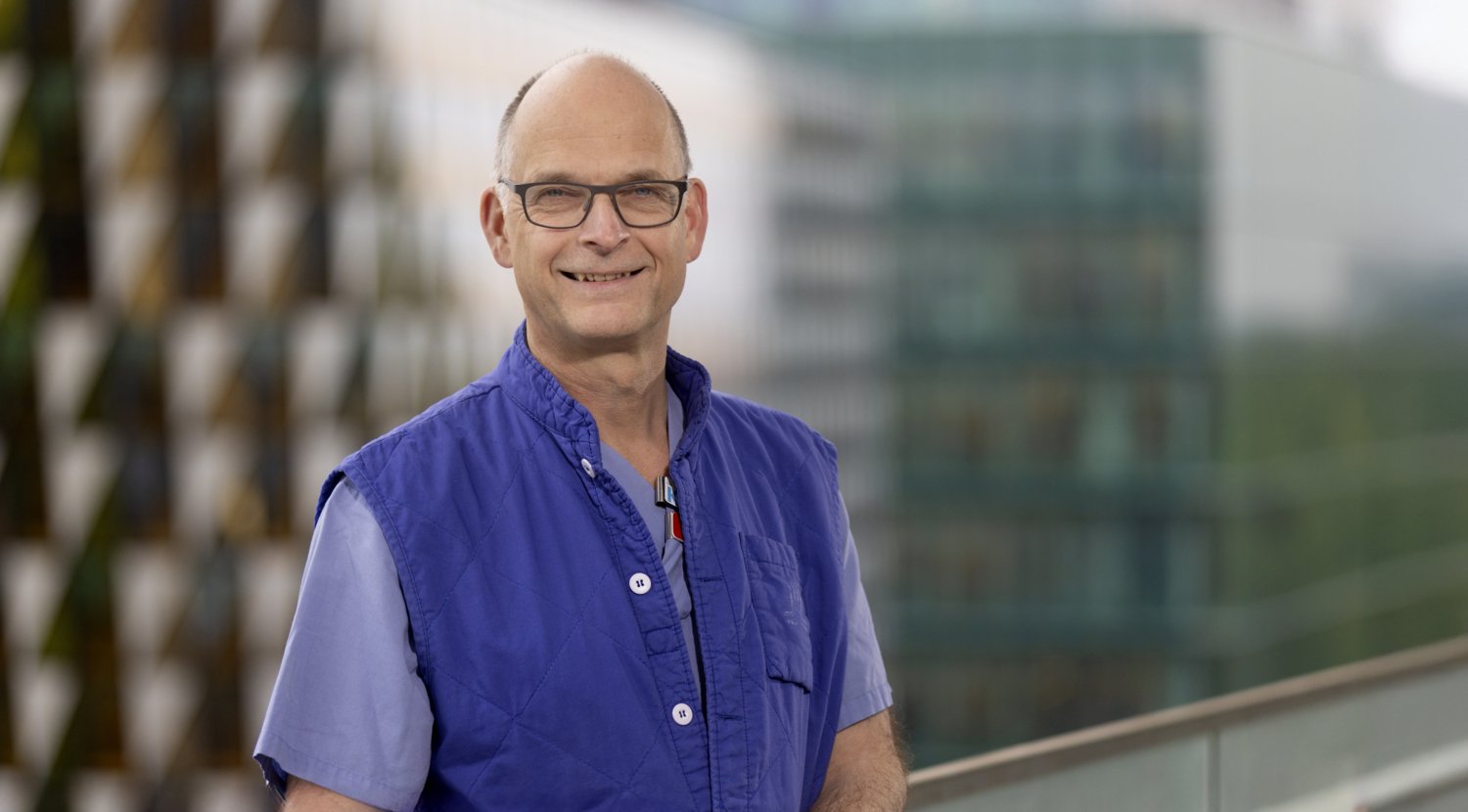 Photo: Rickard Kilström
Photo: Rickard KilströmHoping to improve the care of patients with cardiac arrhythmias
Cardiac arrhythmias are common, can substantially impair quality of life, and may even prove fatal. Frieder Braunschweig is dedicated to improving the care for these patients, with a particular focus on remote home follow-up solutions.
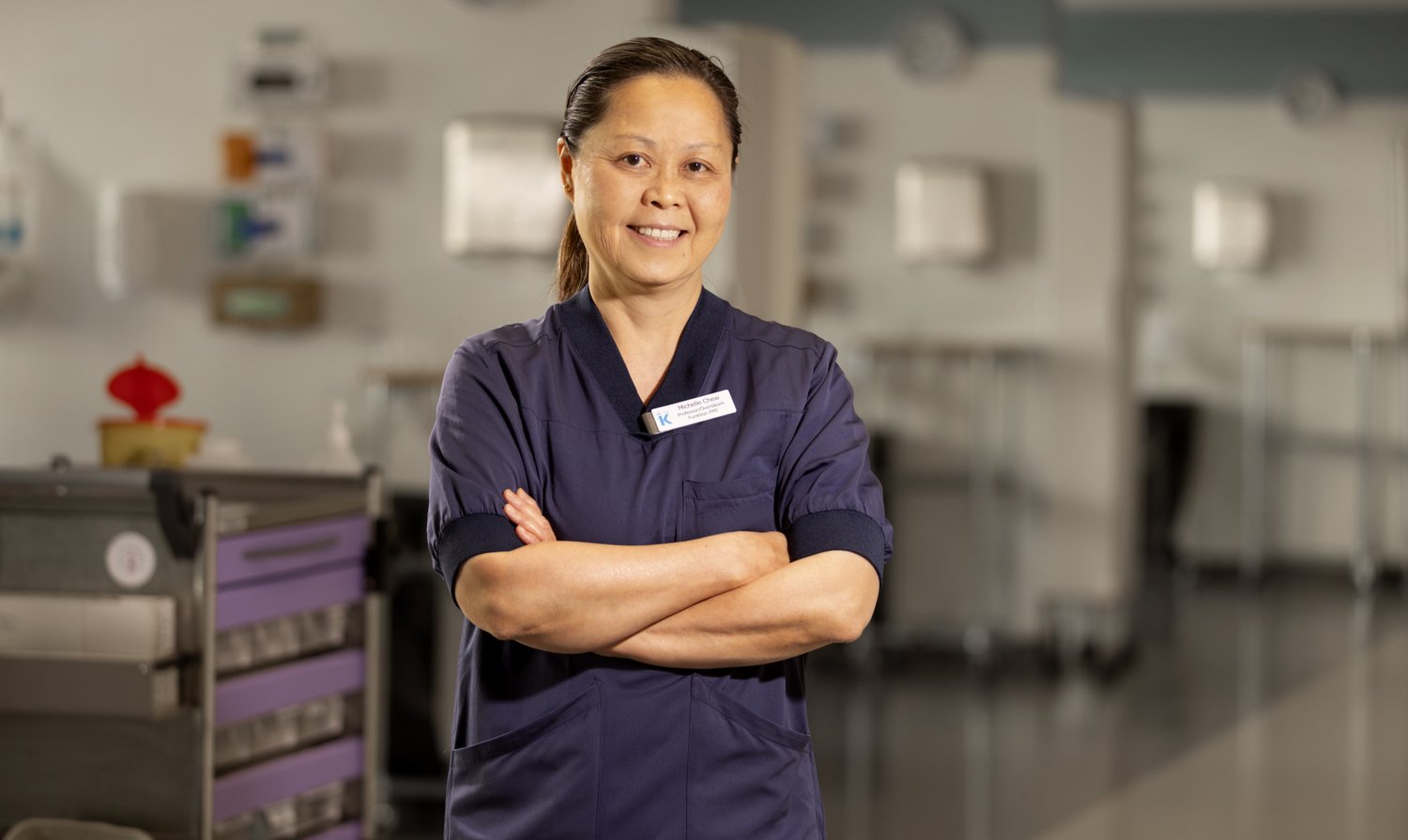 Photo: Rickard Kilström
Photo: Rickard KilströmStudying how surgery and critical illness affects the heart
Heart muscle injury during major surgery and intensive care is common. Michelle Chew studies which patients are at risk and how these injuries can be prevented and treated.
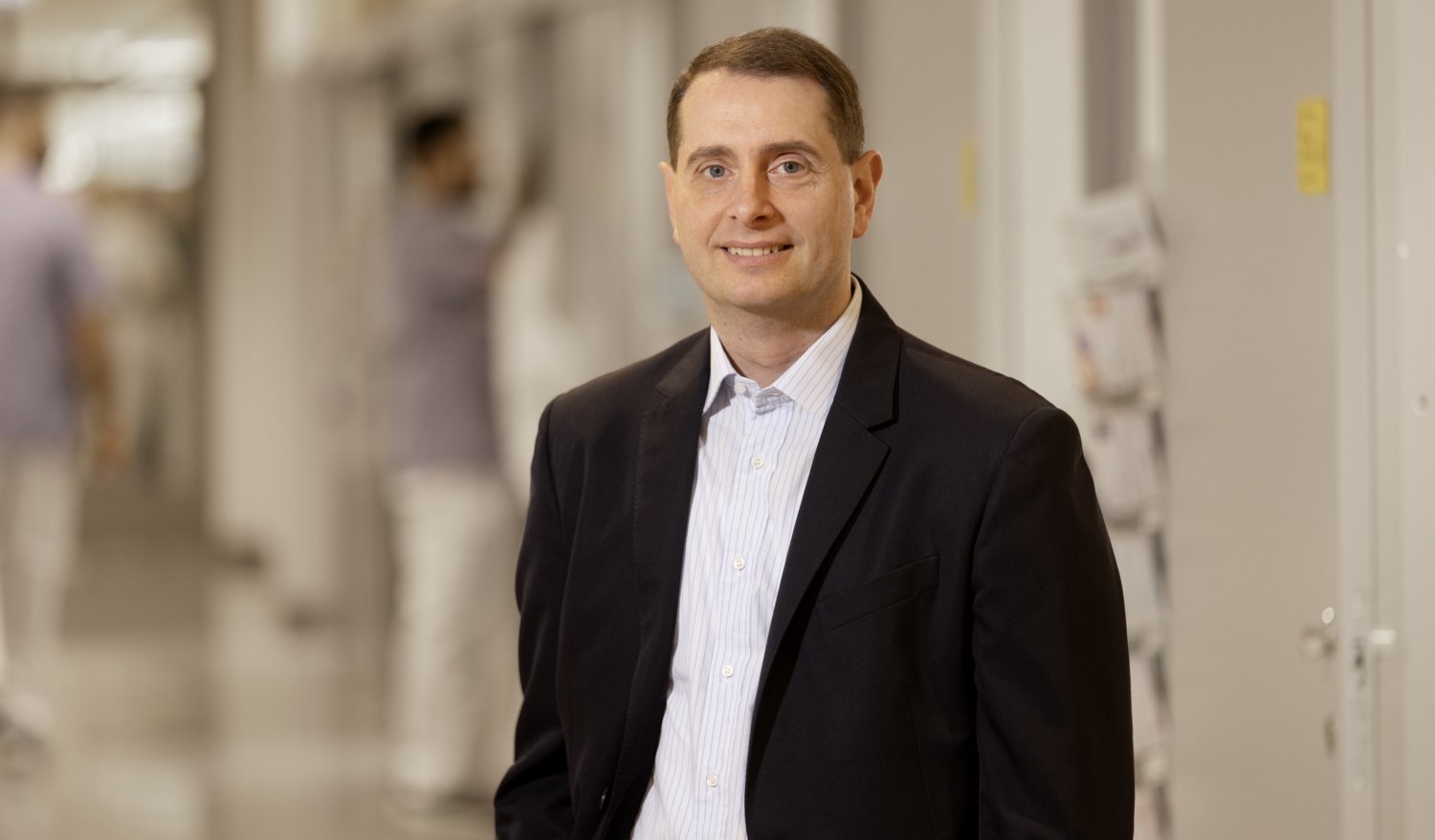 Photo: Rickard Kilström
Photo: Rickard KilströmSeeking the mechanisms behind jaw and face pain
Chronic pain in the jaws and face affects people of all ages and can severely impair their quality of life, work capacity and mental health. Nikolaos Christidis is looking for answers as to what causes the pain and ways to help improve treatments.
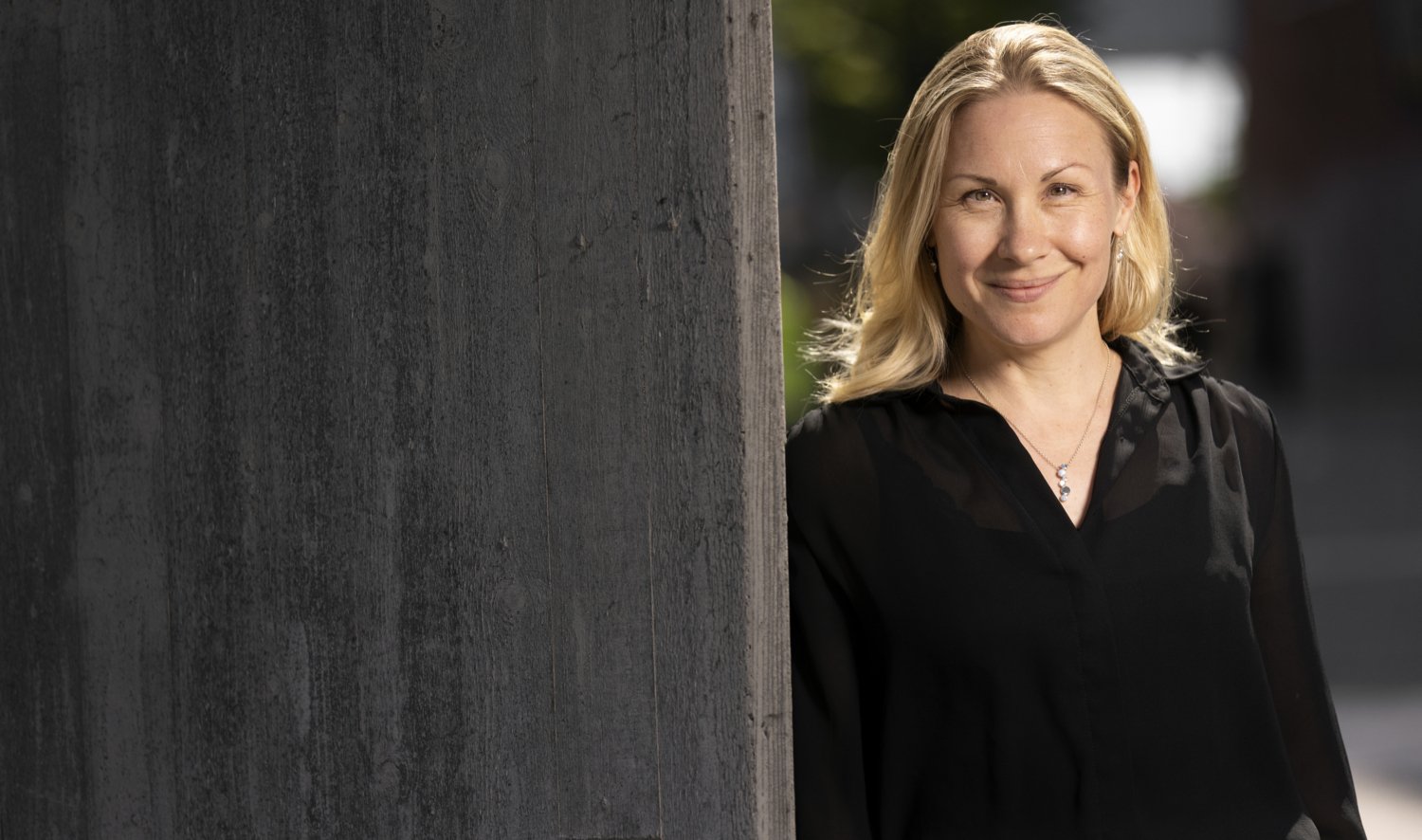 Photo: Rickard Kilström
Photo: Rickard KilströmResearching how chemicals and drugs affect female fertility
The decision to have a child or not should belong to individuals, not to pollution in their environment, argues Pauliina Damdimopoulou, who studies how the chemicals in our environment affect the ovaries and the egg cells they contain.
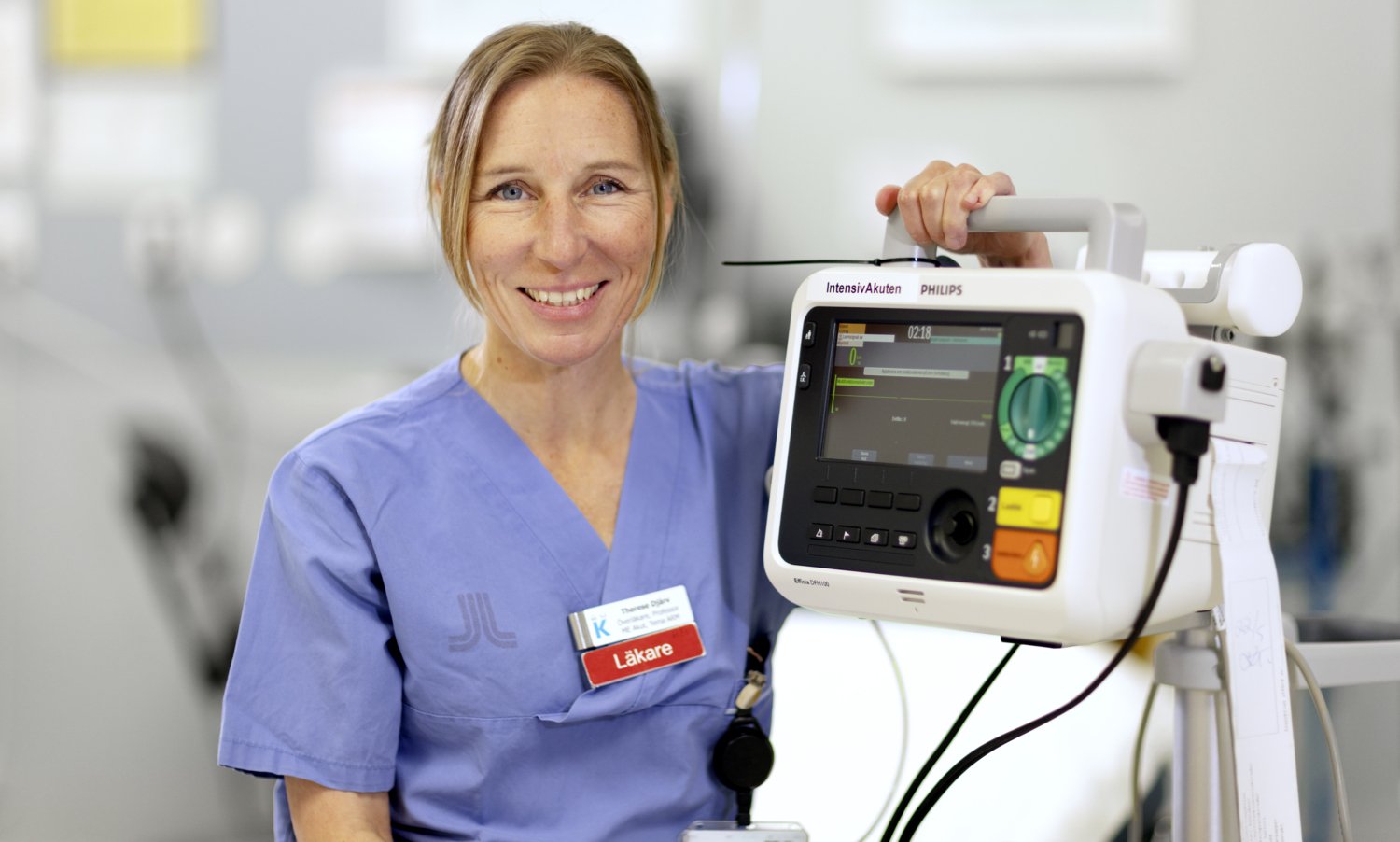 Photo: Rickard Kilström
Photo: Rickard KilströmSeeking to learn more about cardiac arrest in the hospital environment
Every year, approximately 2,500 patients in Sweden suffer a cardiac arrest at a hospital, from which only one in every three survive. Therese Djärv wants to unpack why these events occur and how they can be prevented.
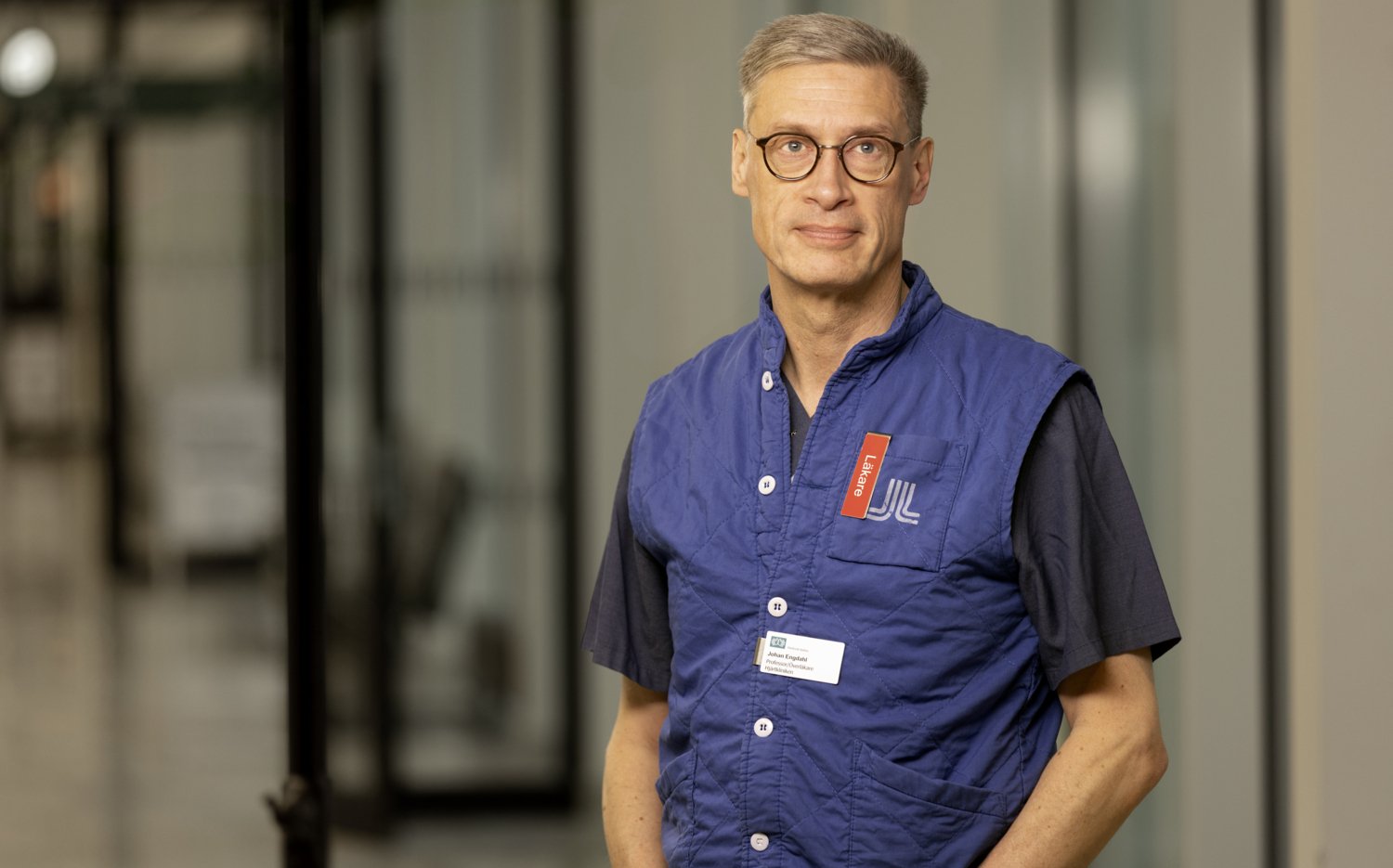 Photo: Rickard Kilström
Photo: Rickard KilströmLooking for better ways to identify patients with atrial fibrillation
Untreated atrial fibrillation increases the risk of serious complications such as stroke, heart failure and dementia. Johan Engdahl is researching how doctors can be better at detecting atrial fibrillation so that patients can be treated in time.
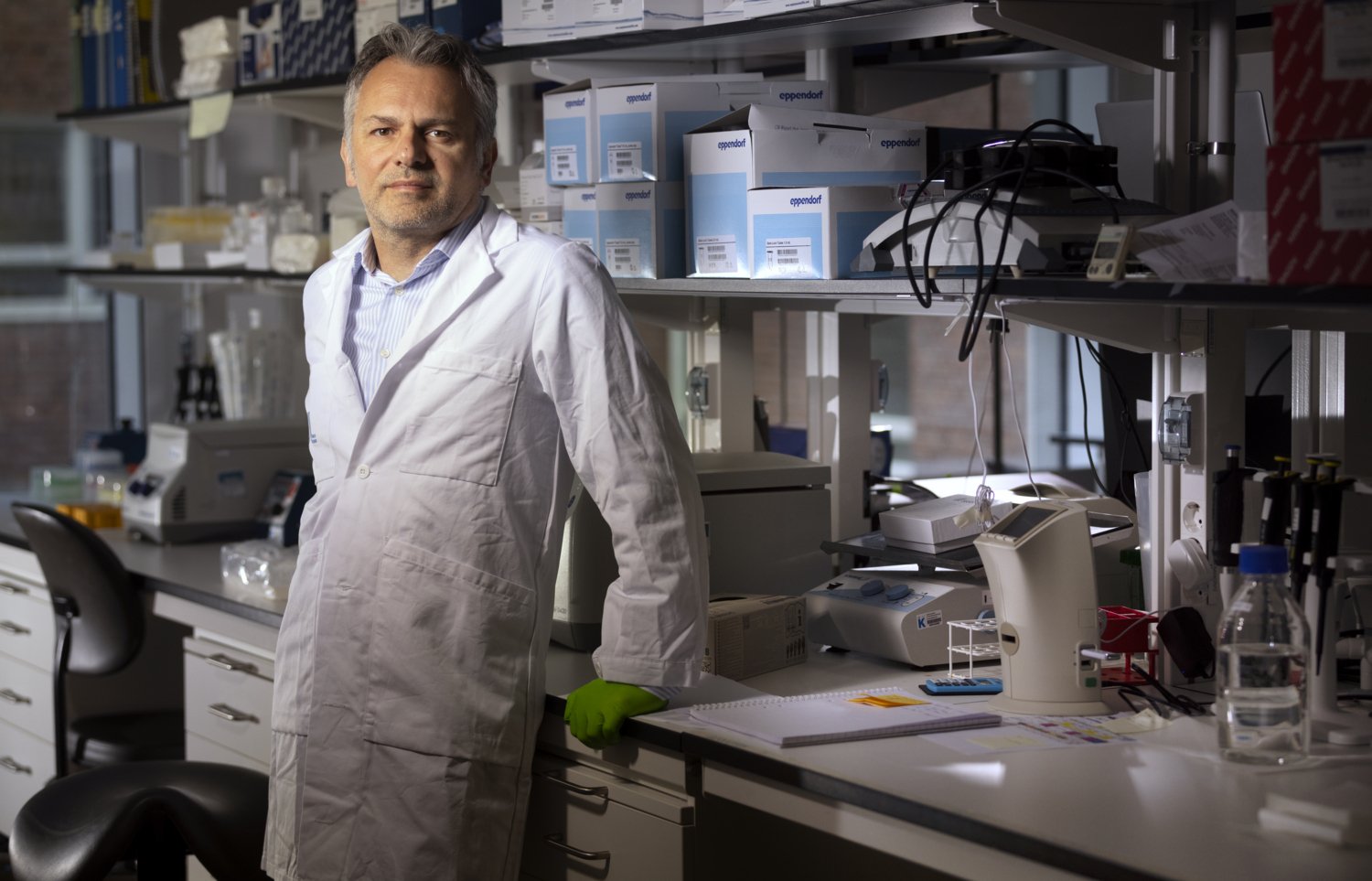 Photo: Rickard Kilström
Photo: Rickard KilströmGetting the right breast cancer therapy to the right patient
Over 1,300 women are still dying of breast cancer in Sweden every year. Theodoros Foukakis is trying to understand the tumour properties that determine the success of a particular treatment in order to achieve greater therapeutic precision.
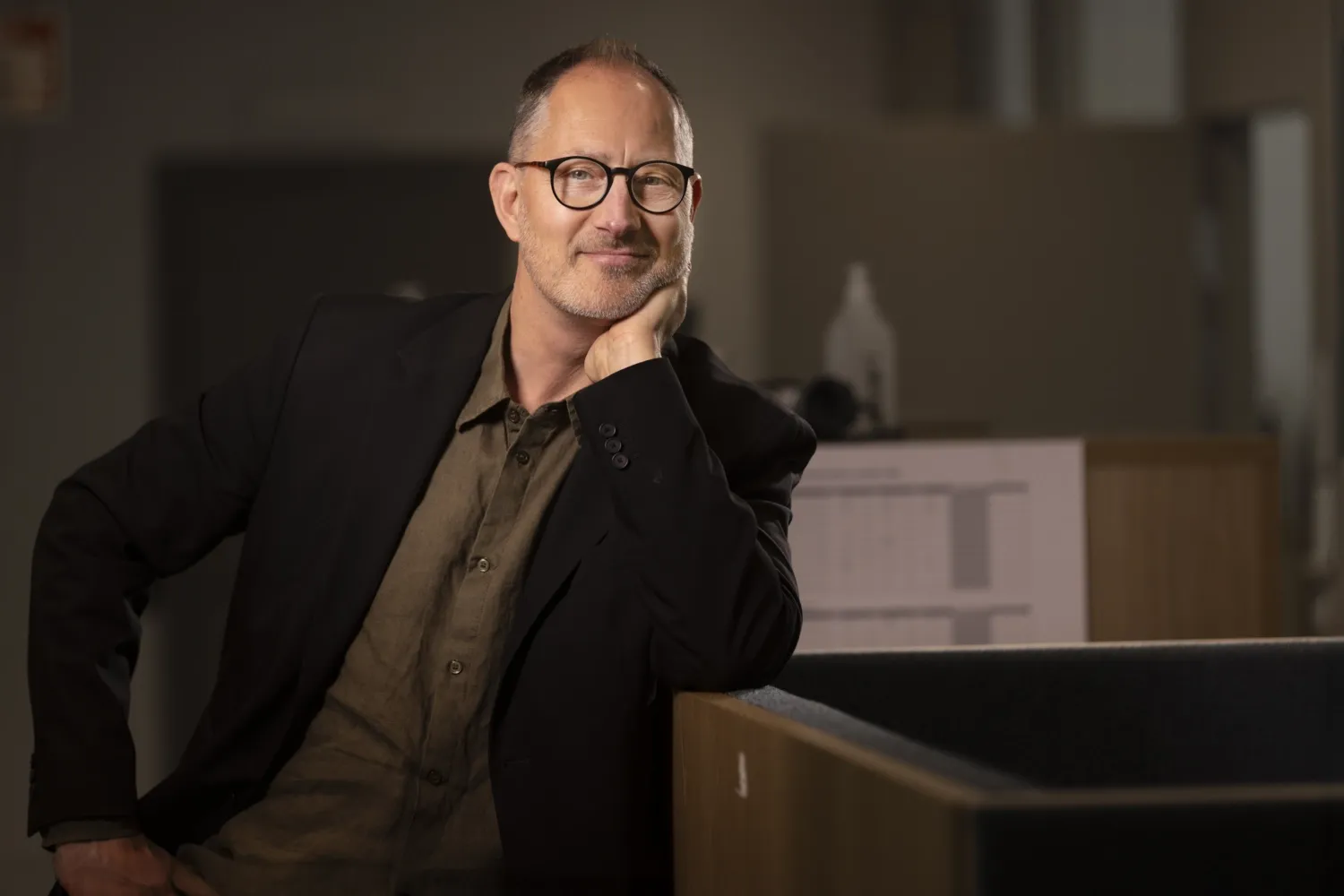 Photo: Rickard Kilström
Photo: Rickard KilströmHoping to find new ways to prevent the spread of cancer
It is the spread of tumours, metastases, which is the usual cause of cancer-related death. Jonas Fuxe researchers the mechanisms driving this process, with a focus on how cancer cells interact with their surroundings and mutate in order to take new paths.
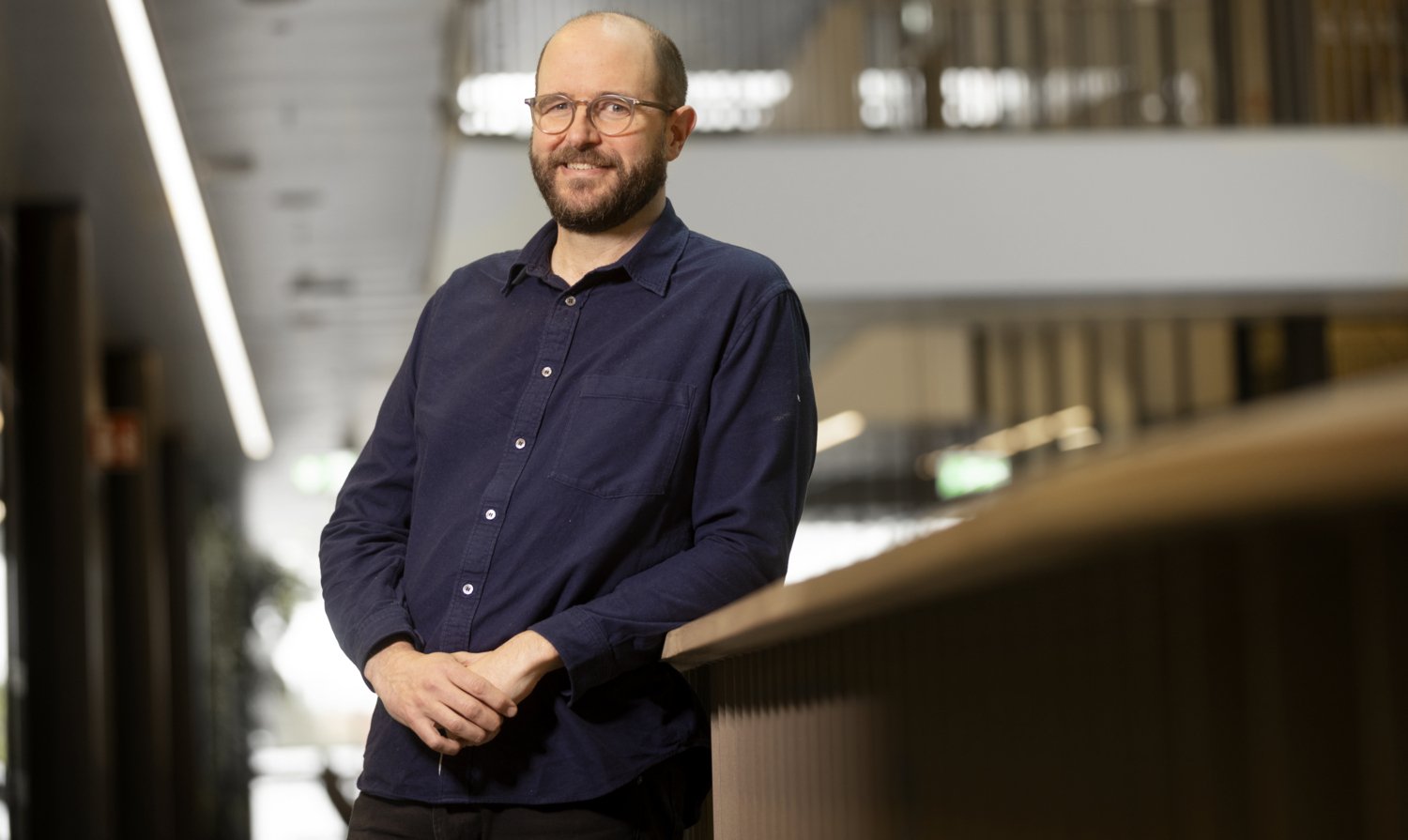 Photo: Rickard Kilström
Photo: Rickard KilströmHoping to prepare the way for more precise schizophrenia therapies
Schizophrenia is a disease that causes great suffering, but today’s methods of treatment are inadequate in dealing with it. Jens Hjerling-Leffler studies what happens in the brain during the phase of life in which the disease often debuts in the hope of promoting the development of more effective drugs.
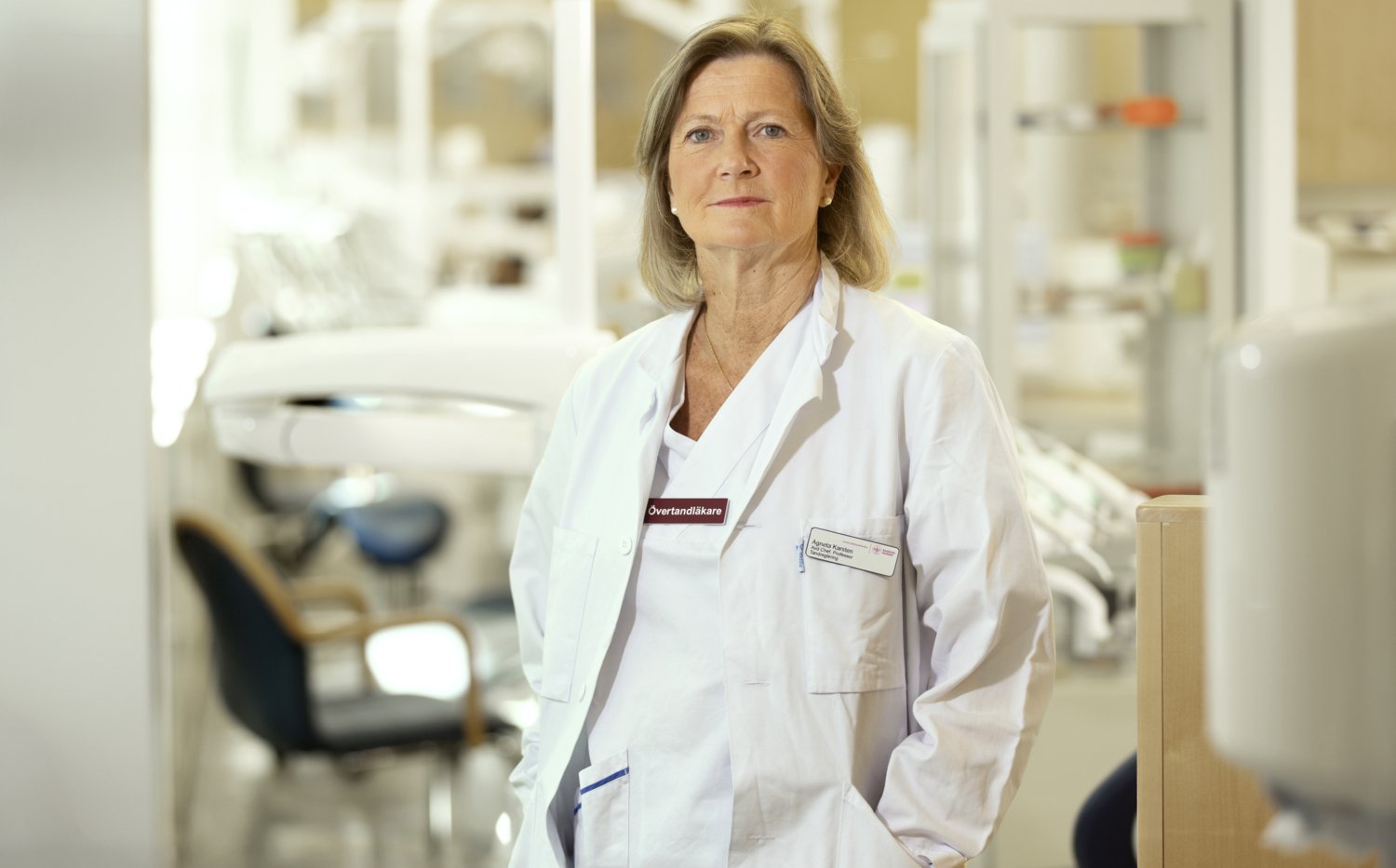 Photo: Rickard Kilström
Photo: Rickard KilströmSeeking optimal treatment for cleft lip and palate
We still don’t know which treatment works best for children with cleft lip, jaw and palate. Agneta Karsten studies how different surgical techniques and orthodontic treatments affects teeth, occlusion and facial growth — and when in life treatment should be carried out.
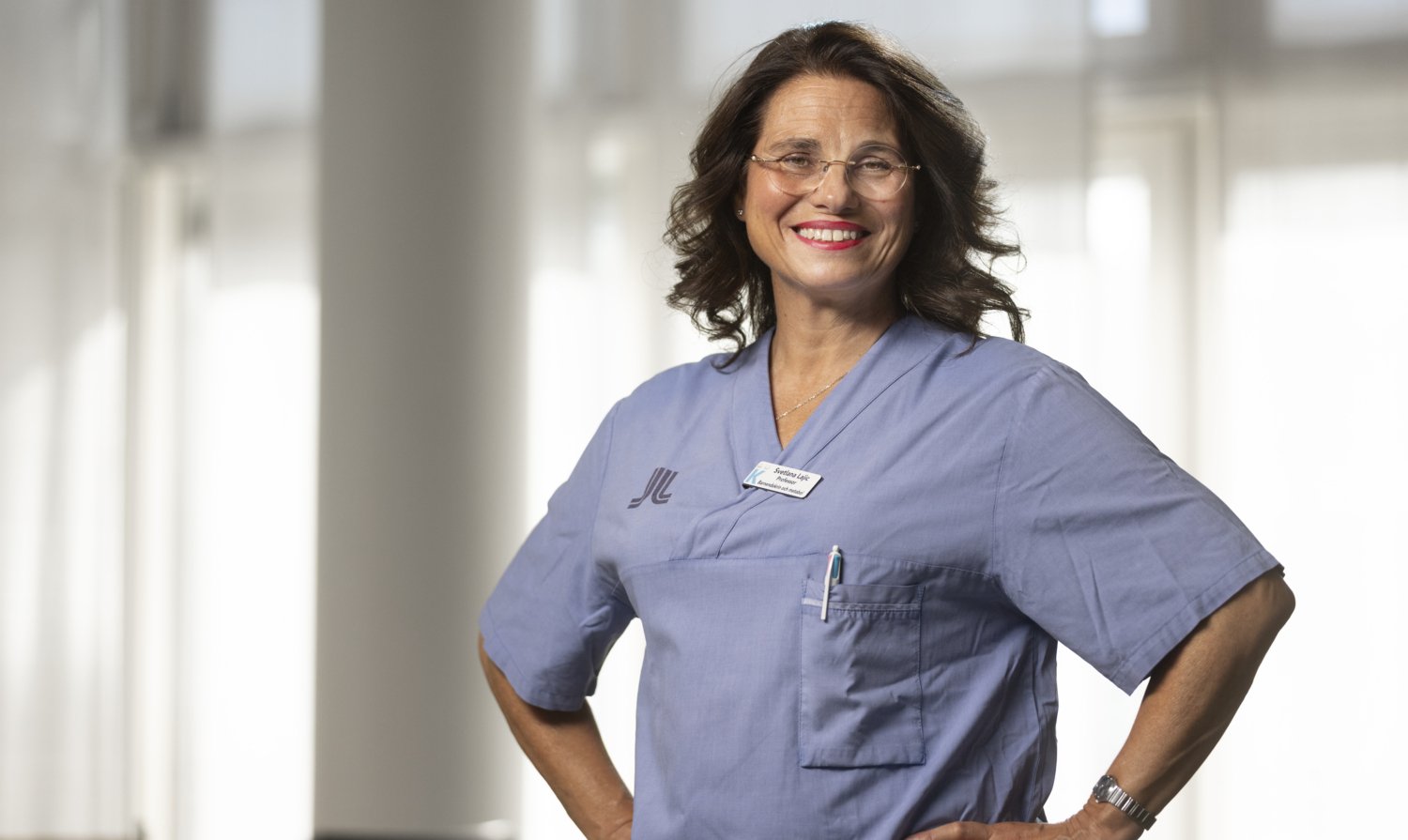 Photo: Rickard Kilström
Photo: Rickard KilströmStudying brain health in endocrine and metabolic diseases
Current treatment strategies for endocrine and metabolic diseases are often sub-optimal. Both the diseases and the treatments can have adverse effects on the brain. Svetlana Lajic Näreskog hopes to improve therapeutic strategies.
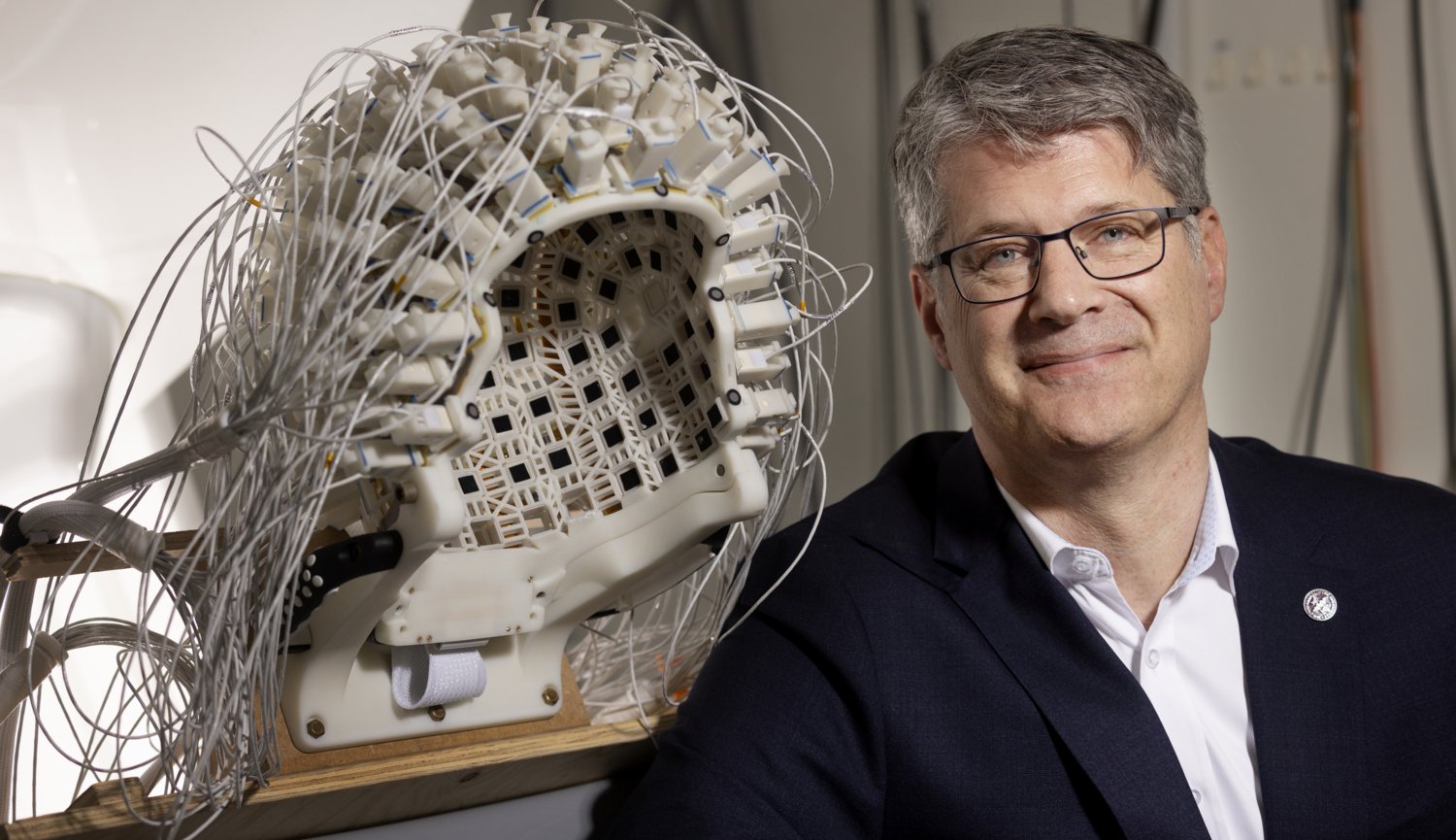 Photo: Rickard Kilström
Photo: Rickard KilströmExploring the brain using advanced imaging
Everything we perceive is the result of neuronal activity in our brains. Daniel Lundqvist uses advanced brain imaging techniques to study the mind. His goal: to help improve the diagnosis and treatment of neurological disorders.
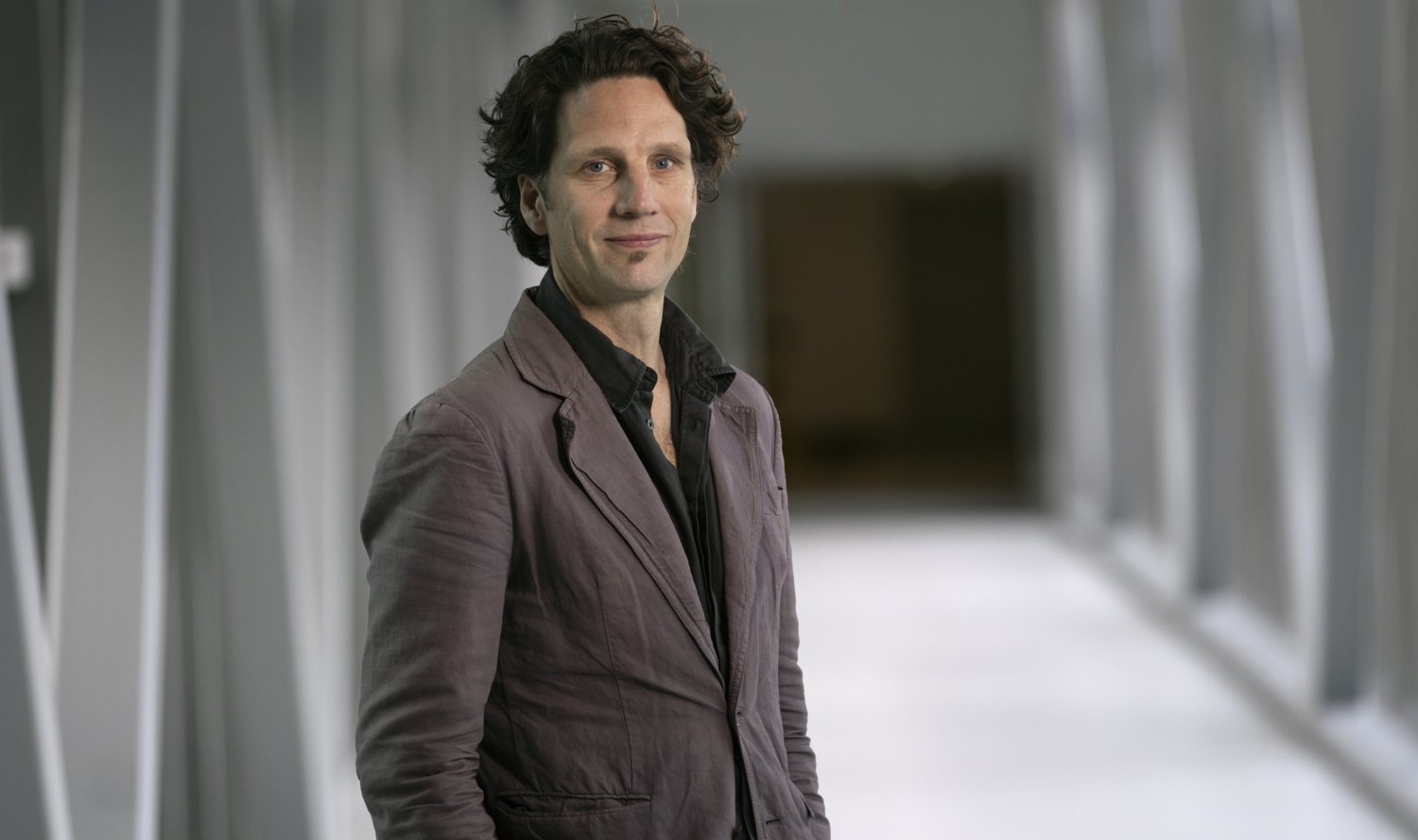 Photo: Rickard Kilström
Photo: Rickard KilströmSeeking to reduce antibiotic resistance with the right treatment at the right time
Pontus Naucler is hoping to improve the treatment of severe infections while reducing the development of antibiotic resistance by combining data from registries and medical records with AI and clinical studies to make antibiotic treatments more precise.
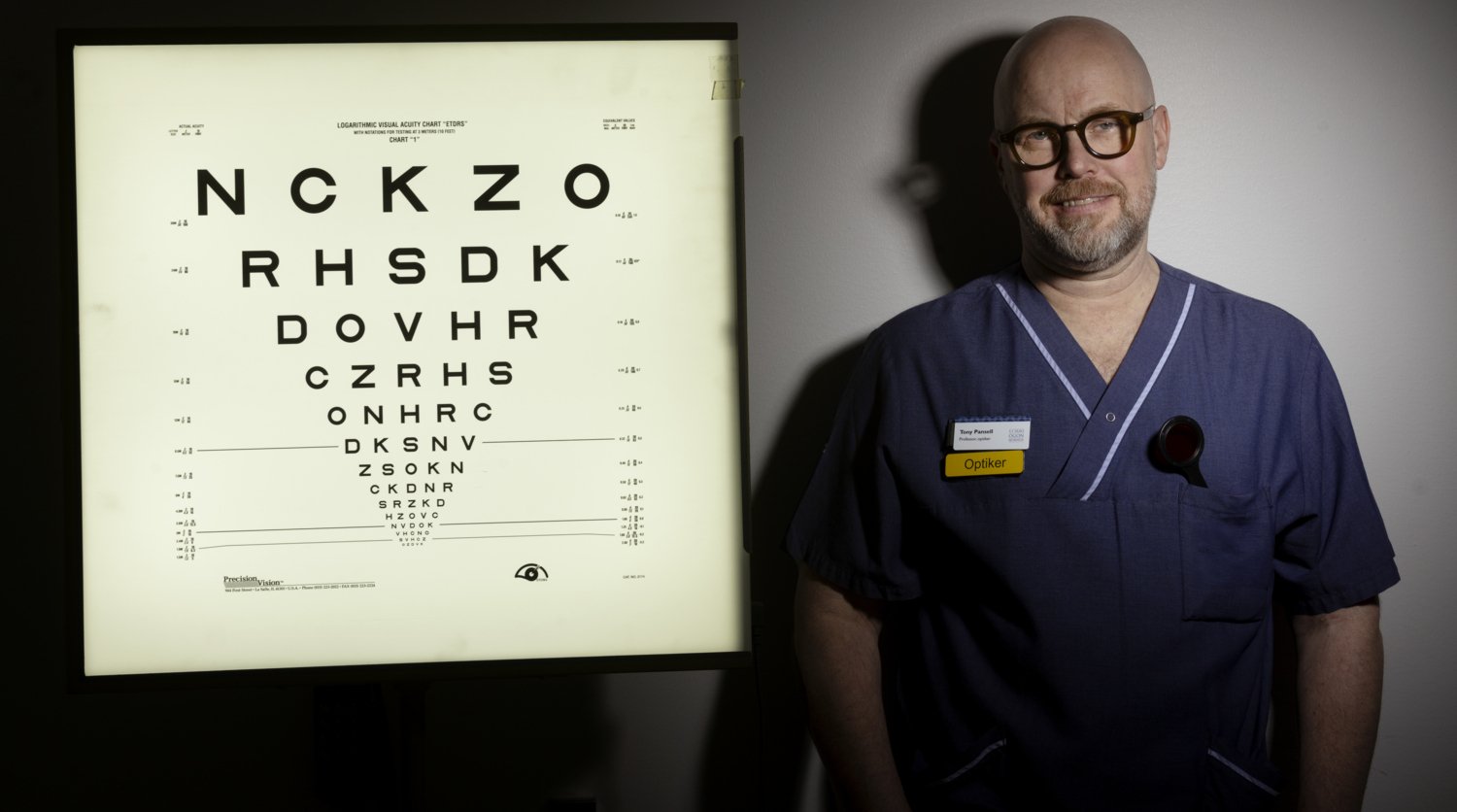 Photo: Rickard Kilström
Photo: Rickard KilströmStudies how visual disorders after brain injuries can be improved
Visual disorders following acquired brain injury are common and affect a person’s everyday activities and quality of life. Tony Pansell is exploring how vision can be improved again — with the help of visual rehabilitation.
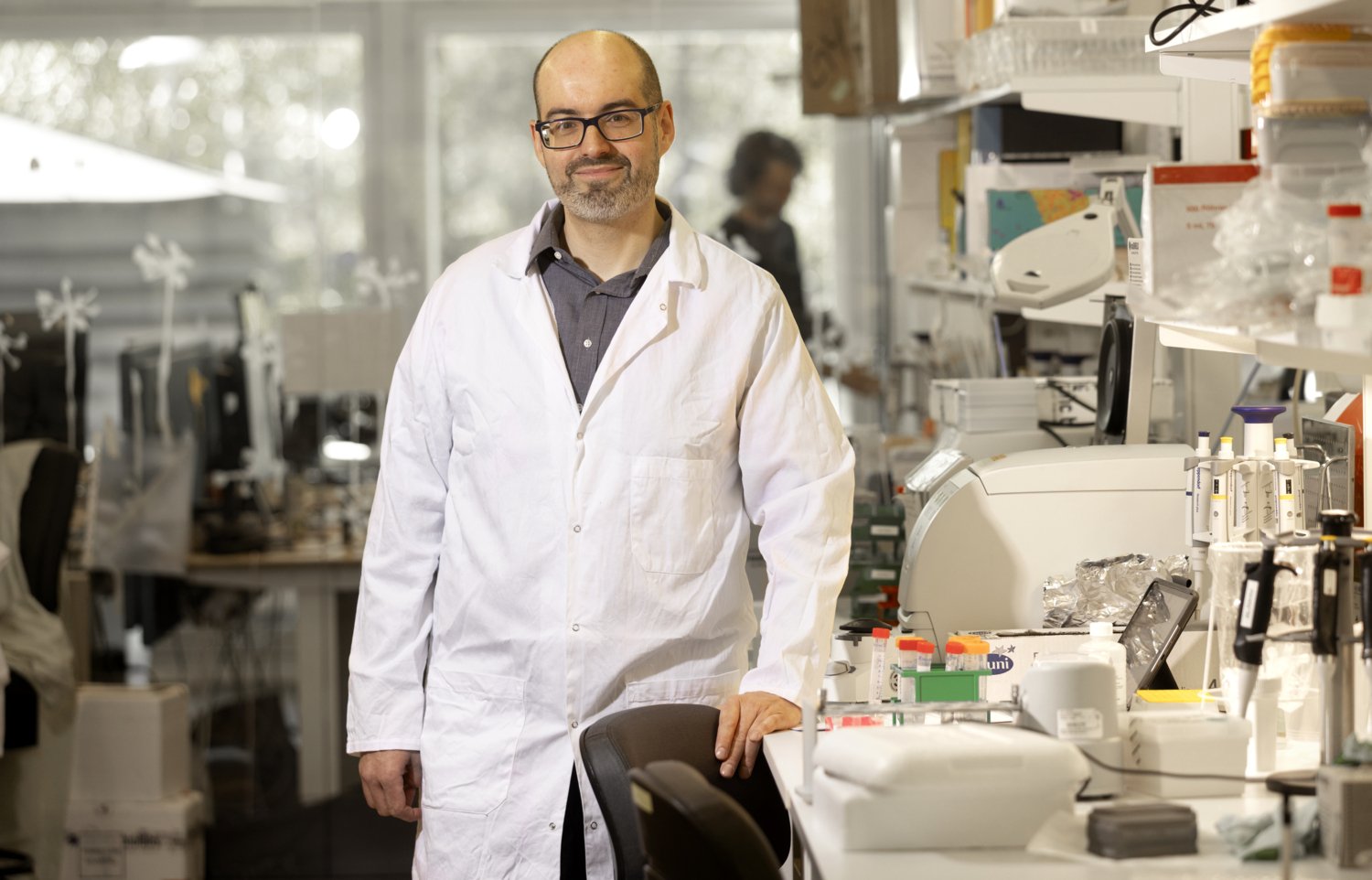 Photo: Rickard Kilström
Photo: Rickard KilströmSeeking to understand RNA better and to contribute to new therapies
RNA is central to how cells function. Through the detailed study of RNA that combines molecular biology with advanced bioinformatics, Vicente Pelechano Garcia hopes to contribute to the development of a new generation of RNA-based treatment and diagnosis.
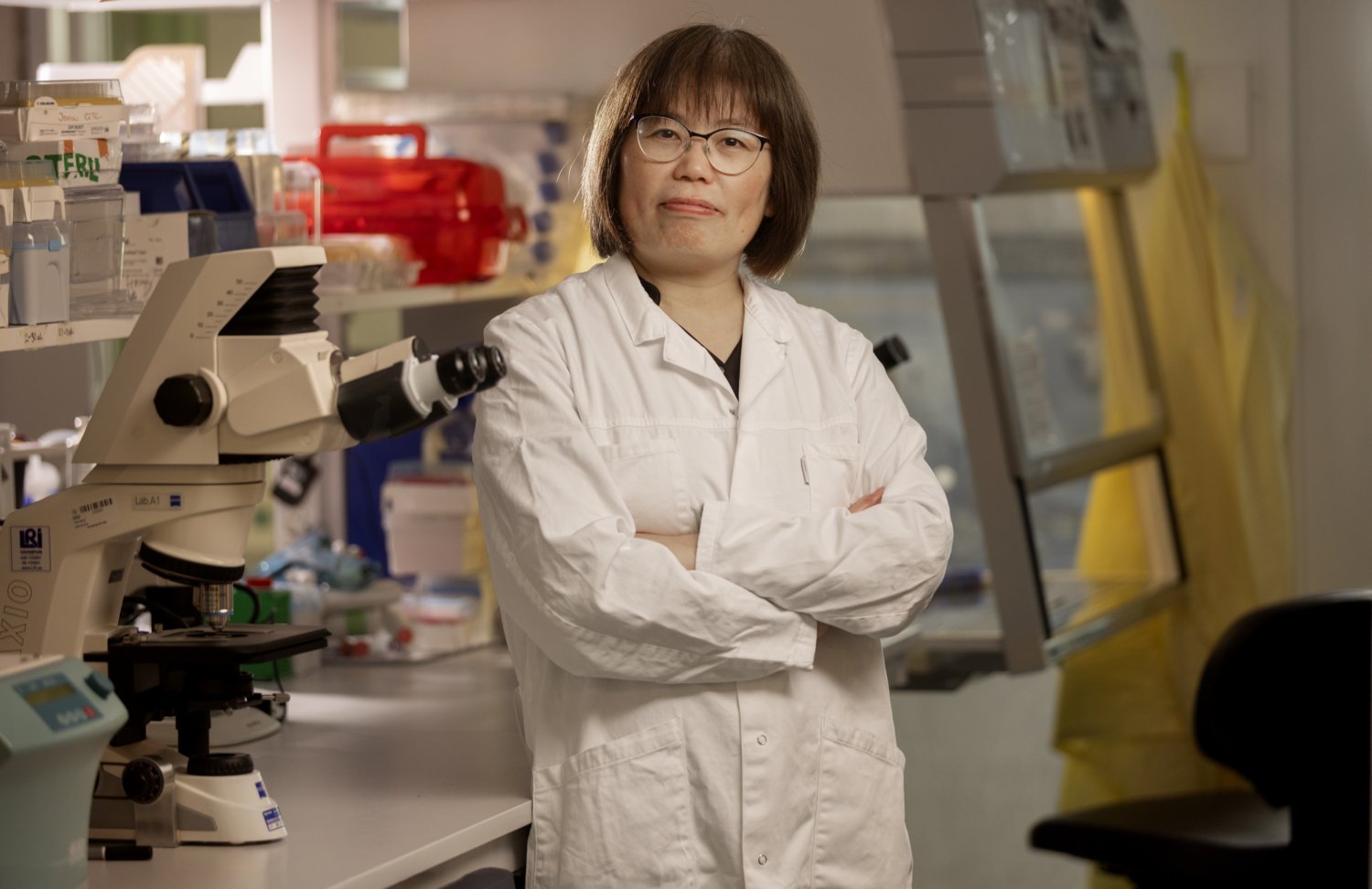 Photo: Rickard Kilström
Photo: Rickard KilströmStudying the microenvironment in which leukaemia cells grow
The greatest challenge facing current treatments of leukaemia is drug resistance. Hong Qian studies the microenvironment where the cancer cells are formed with the aim to find new treatment pathways.
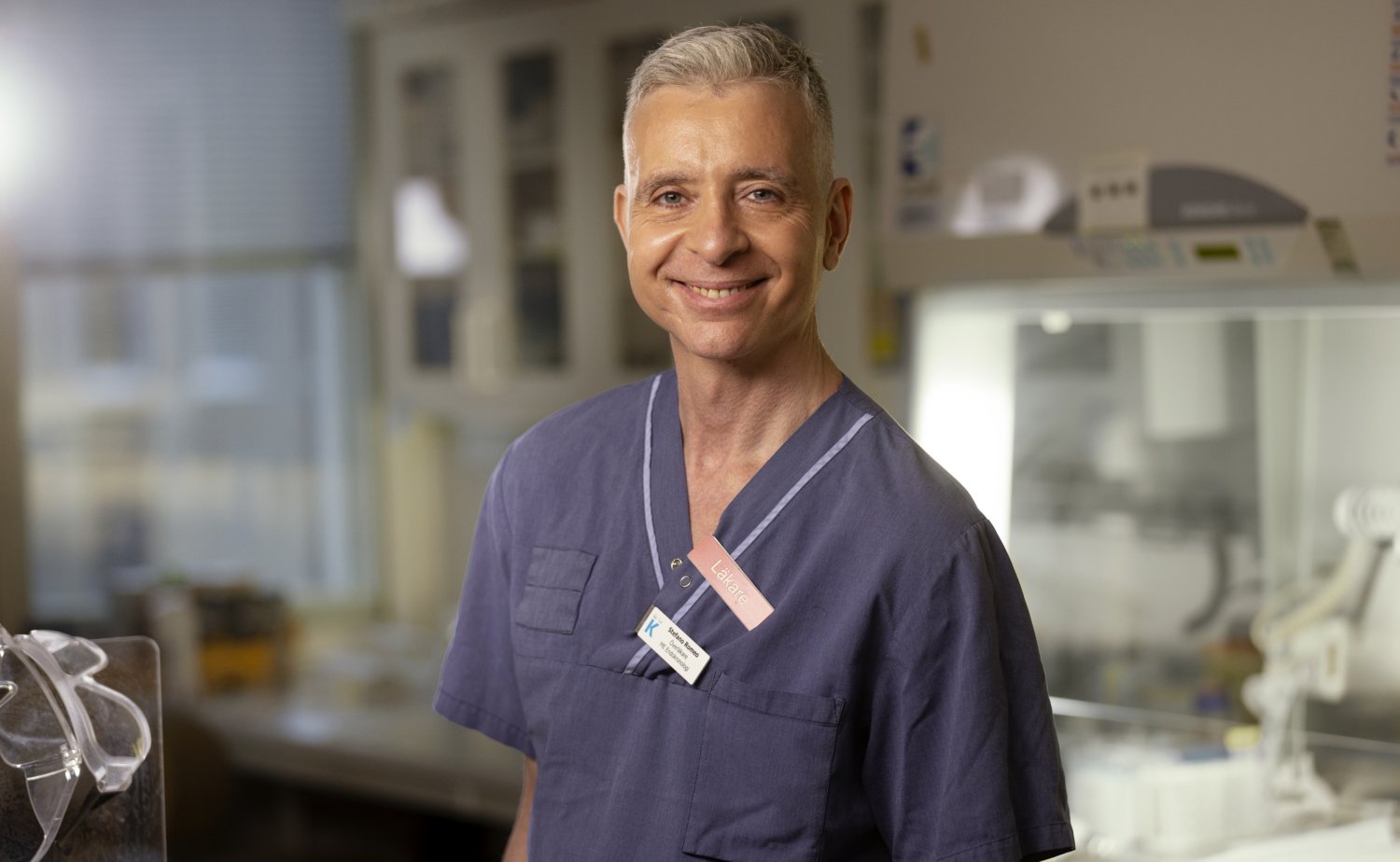 Photo: Rickard Kilström
Photo: Rickard KilströmHunting down the genetics of serious liver disease
Fatty liver results from overweight and obesity and it is a common disease leading to cirrhosis and liver cancer. Stefano Romeo is investigating the genetic basis of the diseases to identify novel therapeutic strategies.
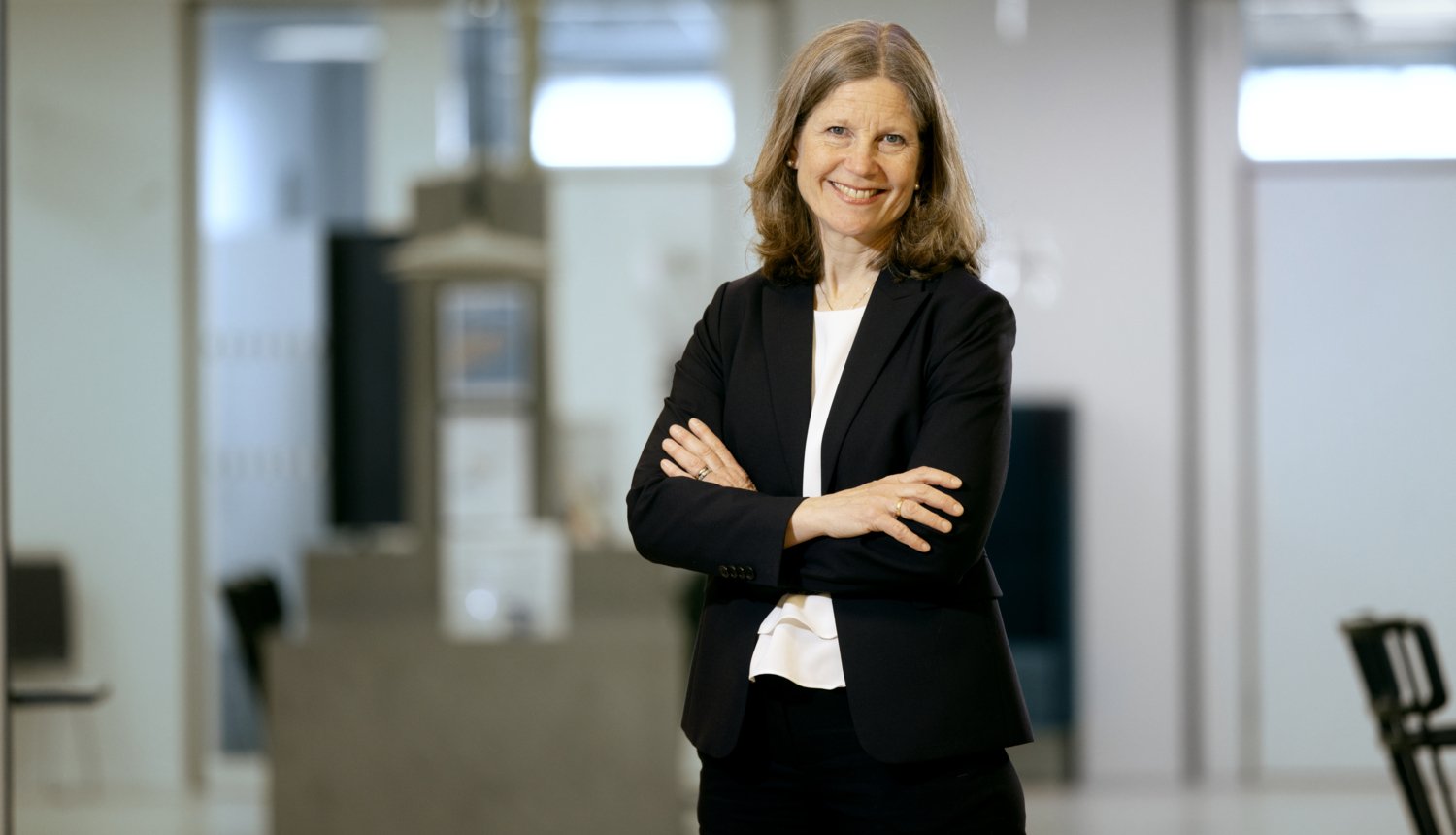 Photo: Rickard Kilström
Photo: Rickard KilströmWorking to help people to adopt healthier lifestyles
Ill-health linked to sedentary lifestyles and poor diets is a growing problem. Ylva Trolle Lagerros develops apps designed to help people make more healthy everyday life choices.
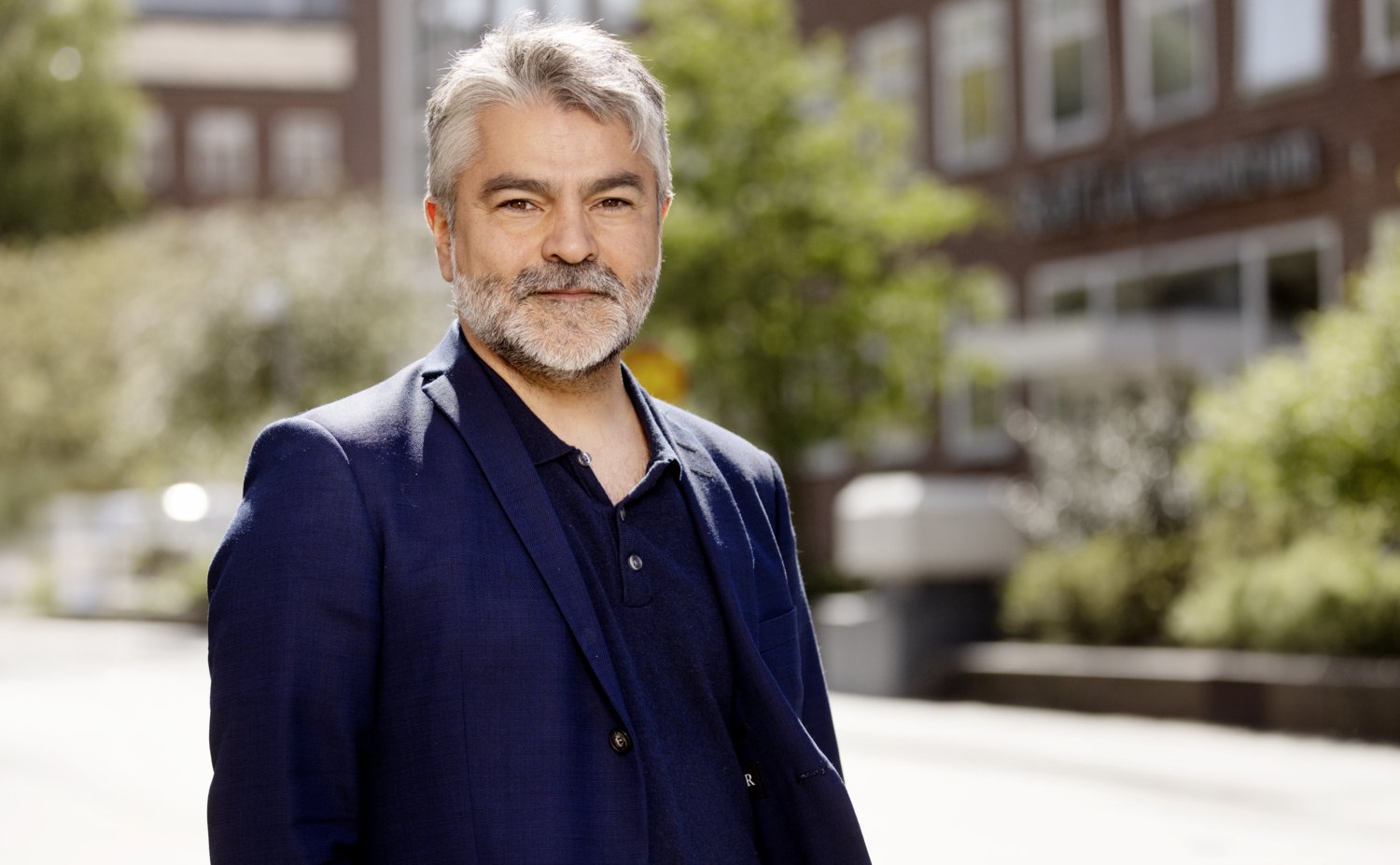 Photo: Rickard Kilström
Photo: Rickard KilströmStudying how inflammation starts and heals in the gut
Inflammatory bowel disease affects millions of people worldwide and currently lacks a cure. Eduardo Villablanca studies how inflammation starts and heals in the intestines, with the aim to find new treatment methods.
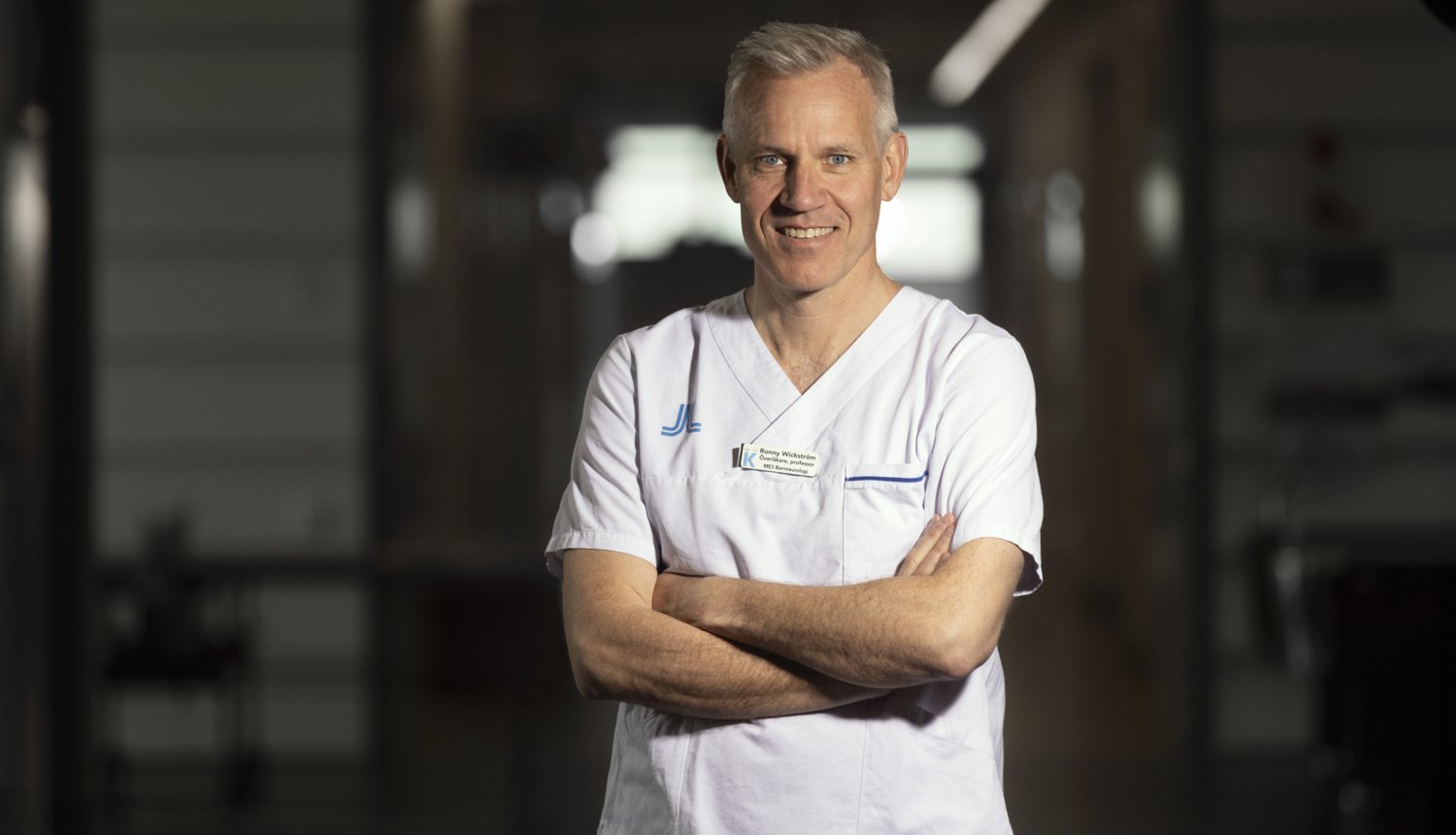 Photo: Rickard Kilström
Photo: Rickard KilströmHoping to solve the puzzle of severe status epilepticus
Ronny Wickström researches autoimmune and inflammatory diseases in the child brain. At present his focus is on prolonged cases of status epilepticus, a life-threatening condition that does not respond to epilepsy medicine.
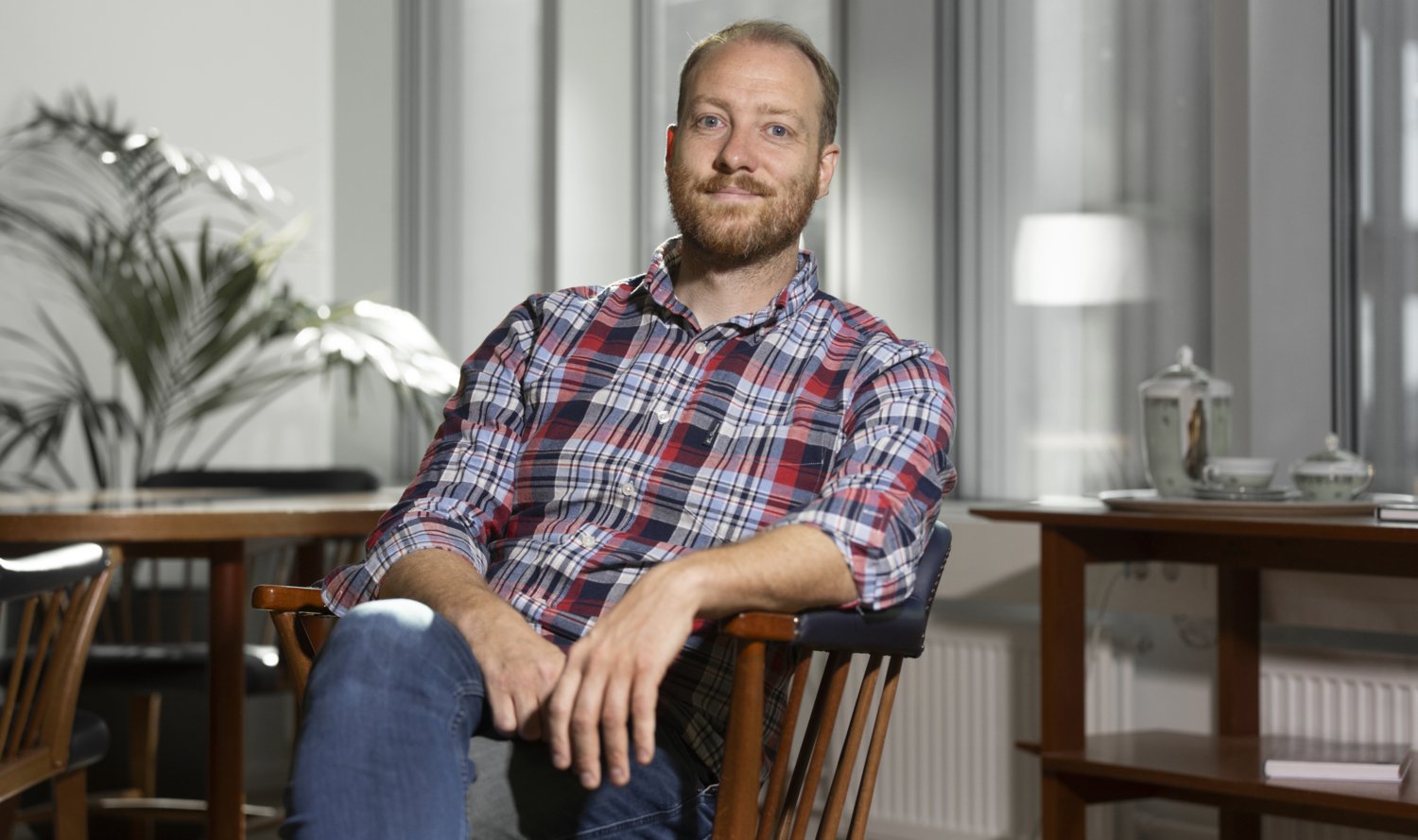 Photo: Rickard Kilström
Photo: Rickard KilströmSeeking new treatments for glaucoma
Glaucoma is the most common cause of irreversible blindness worldwide. Pete Williams wants to find new ways of treating this disease by protecting and restoring nerve cells in the eye.
We also celebrate
New Adjunct Professors
New Visiting Professors and Foreign Adjunct Professors
Awardees of 2025
Learn more

Academic ceremonies
Karolinska Institutet arranges various academic ceremonies each year. Activities include conferring of doctor's degrees, professorial awards and academic prizes.
 Photo: Fredrik Persson
Photo: Fredrik PerssonCeremony, joy and world-class research as KI honours its new professors
At the installation ceremony for KI’s 22 new professors, Aula Medica was filled with music, laughter and academic pride. The annual professorial installation is as much a tribute to knowledge, diversity and research as it is a ceremonial occasion. Also honoured during the evening were the recipients of various awards, including KI’s Grand Silver Medal, Silver Medal and the Lennart Nilsson Award.
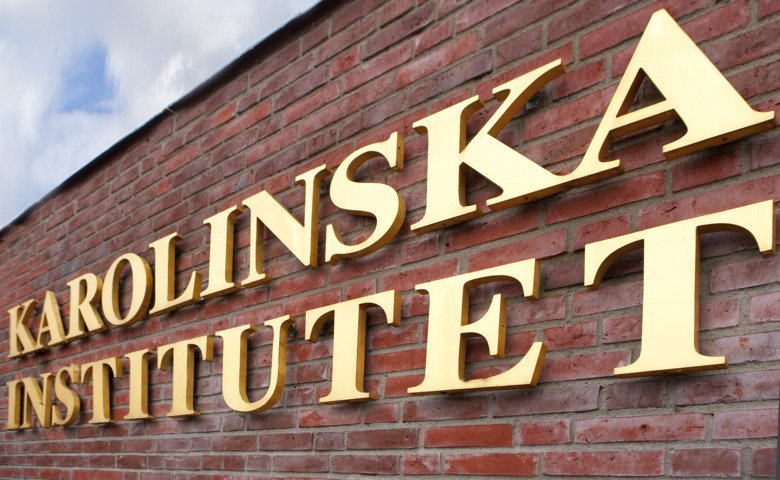 Photo: Pierre Zoetterman
Photo: Pierre Zoetterman